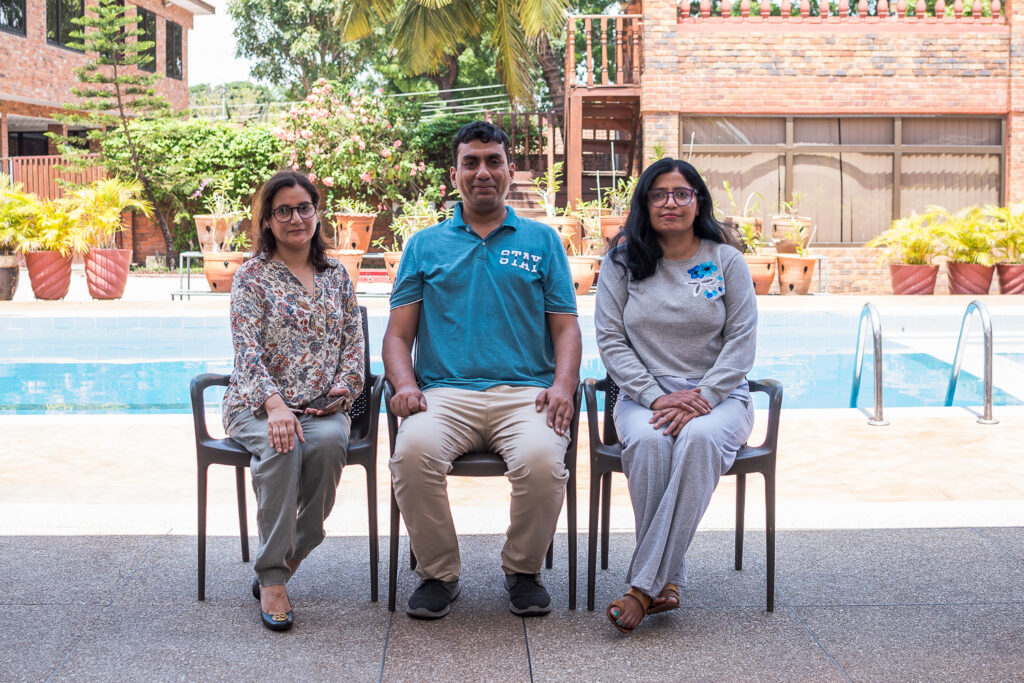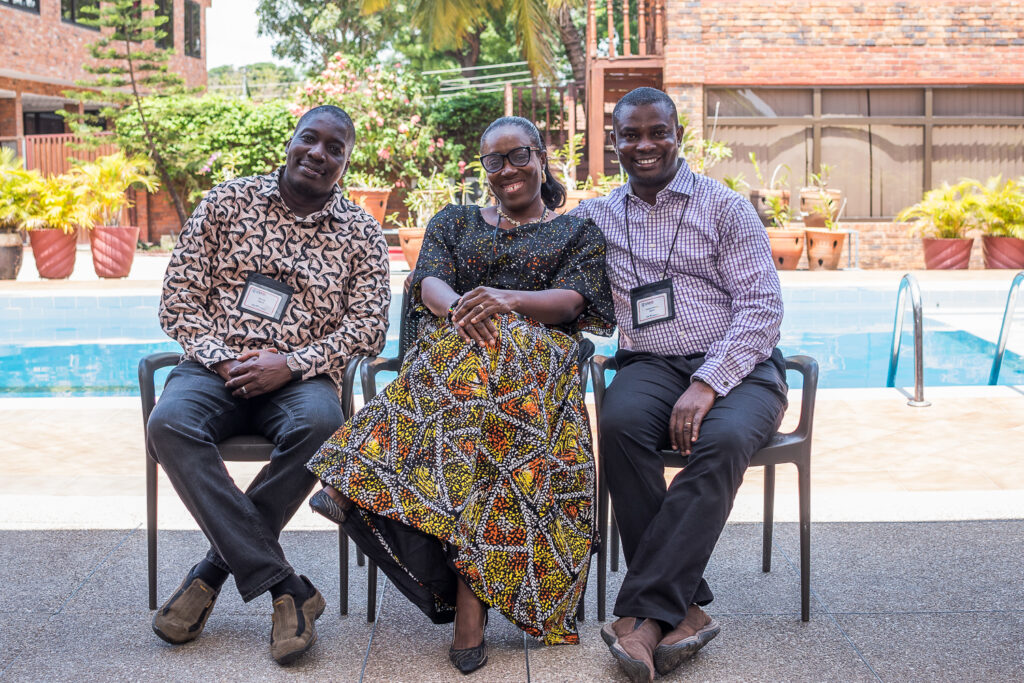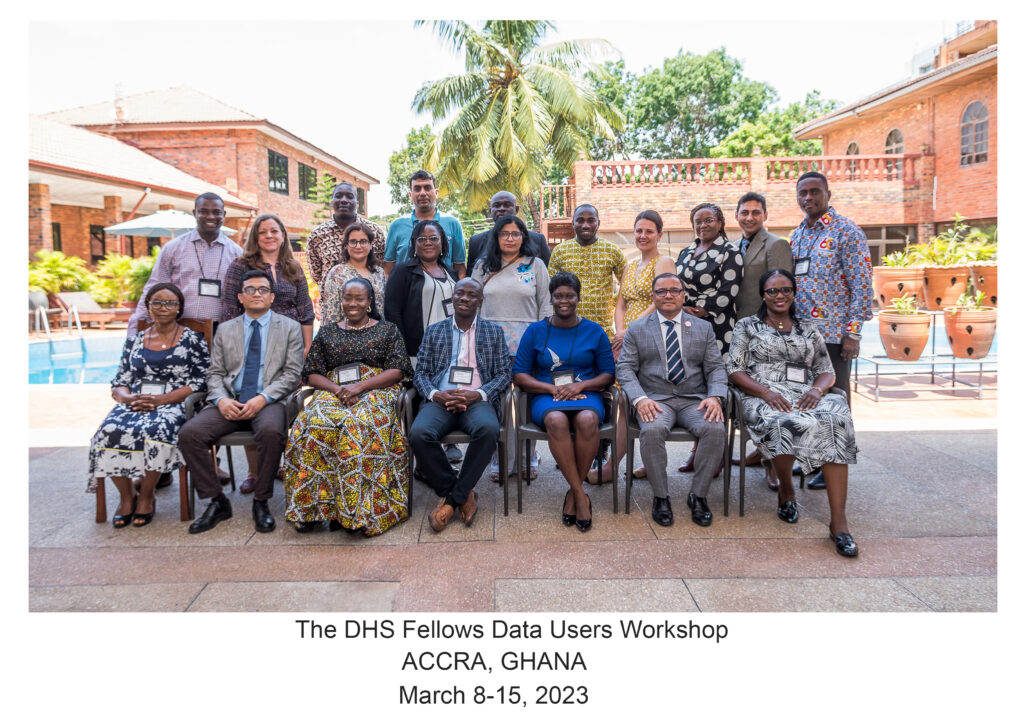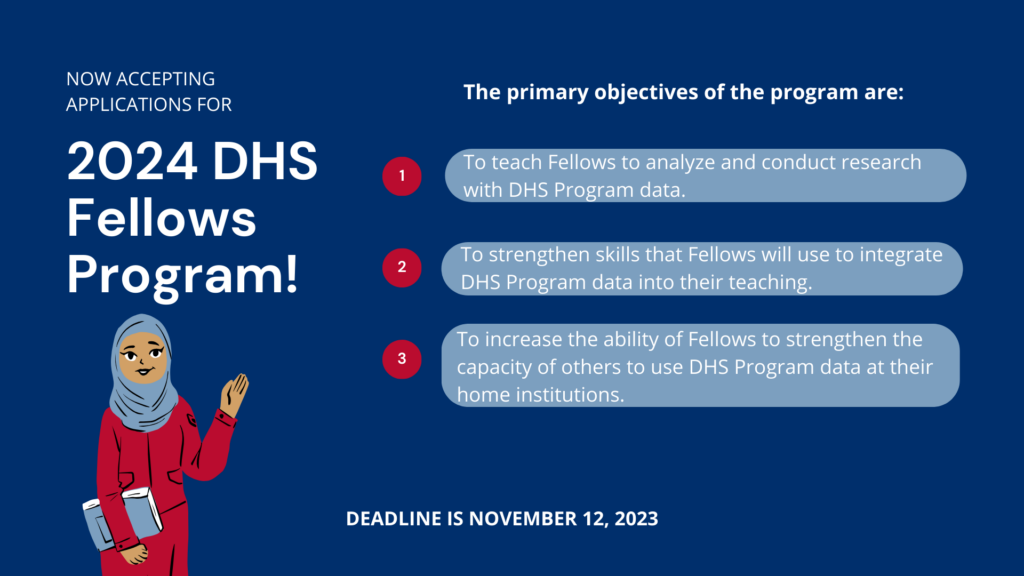Reflections from the 2023 DHS Fellows Program

Many people have used DHS Program data in their Ph.D. dissertations or as a tool to teach hands-on data analysis techniques to public health and statistics students. DHS Fellows get to work directly with DHS Program researchers to strengthen their analytical skills, conduct original research using DHS Program data, write working papers on a topic of interest, prepare presentations to share their findings with policy makers, and improve their use of DHS Program data in the classroom to enhance their teaching. In 2023, 18 university faculty members became the newest cohort of DHS Fellows.
The DHS Fellows Program strengthens the long-term institutional capacity of universities in DHS countries to train students and faculty to analyze DHS data. Since 2011, the DHS Fellows Program has trained more than 180 researchers from 54 universities in 29 countries in Africa, Asia, and the Middle East. Typically, DHS Fellows attend two separate in-person workshops, prepare publication-quality research papers in teams using DHS datasets, and implement capacity strengthening activities at their home universities.
For the 2023 DHS Fellows Program, a cohort of university faculty from Bangladesh, Ghana, Nigeria, and Pakistan convened for two workshops in Accra, Ghana and Antalya, Türkiye. The first workshop prepared DHS Fellows to analyze DHS Program data from their respective countries. Facilitators reviewed DHS questionnaires, recode data files and variables, survey sampling and weighting, use of do files in Stata, dataset merging, variable recoding, and regression analysis. Former DHS Fellows co-facilitating the workshop shared with 2023 DHS Fellows how to prepare and implement capacity strengthening workshops on DHS Program data at their home universities. DHS Fellows enjoyed networking, getting to know each other, and sightseeing on the weekend.
About two months later, the DHS Fellows came together again for the second workshop, focused on refining their research papers and learning more about advanced topics, such as geospatial analysis using DHS Program data. Teams of DHS Fellows also worked on communicating the findings of their research to non-technical audiences to maximize uptake of their findings by policy and program partners. By the end of the second workshop, teams had nearly final versions of their research papers. The final products, the DHS Fellows working papers, are published on the DHS Program website, and Fellows also presented their research to USAID Washington, USAID missions, and other partners during virtual presentations.







See more photos from the 2023 DHS Fellows in Facebook albums for workshop 1 and workshop 2.
The 2023 DHS Fellows produced working papers on the following research topics:
- Individual- and Community-level Correlates of Intermittent Preventive Treatment of Malaria in Pregnancy in Ghana
- Prevalence and Determinants of Mother and Newborn Skin-to-Skin Contact in Bangladesh
- Health Insurance Coverage and Access to Maternal Health Services: Findings from Nigerian Women of Reproductive Age
- Reducing Child Malnutrition through Mother’s Birth Spacing: Evidence from Ghana
- Sub-national Analysis of Contraceptive Discontinuation among Women in Nigeria
- Women’s Autonomy and Unintended Pregnancy among Reproductive Age Women in Pakistan
“This fellowship is highly recommended 👌. I was part of the 2022 DHS Fellows Program and the data analysis skills I acquired are immeasurable.”
-Emma Chikovore, Ph.D., Postdoctoral Research Fellow, University of KwaZulu-Natal, Durban, South Africa
Does the DHS Fellows program sound interesting to you? Are you a faculty member at a university in Bangladesh, Burkina Faso, Cambodia, Cameroon, Cote d’Ivoire, Gabon, Gambia, Guinea, Jordan, Kenya, Liberia, Madagascar, Mali, Mauritania, Niger, Papua New Guinea, Philippines, Rwanda, Senegal, Sierra Leone, Tanzania, Uganda, or Zambia? Do you teach and/or conduct research in demography, public health, economics, sociology or other social sciences? Apply today! The deadline for the 2024 DHS Fellows Program is Sunday, November 12, 2023.


